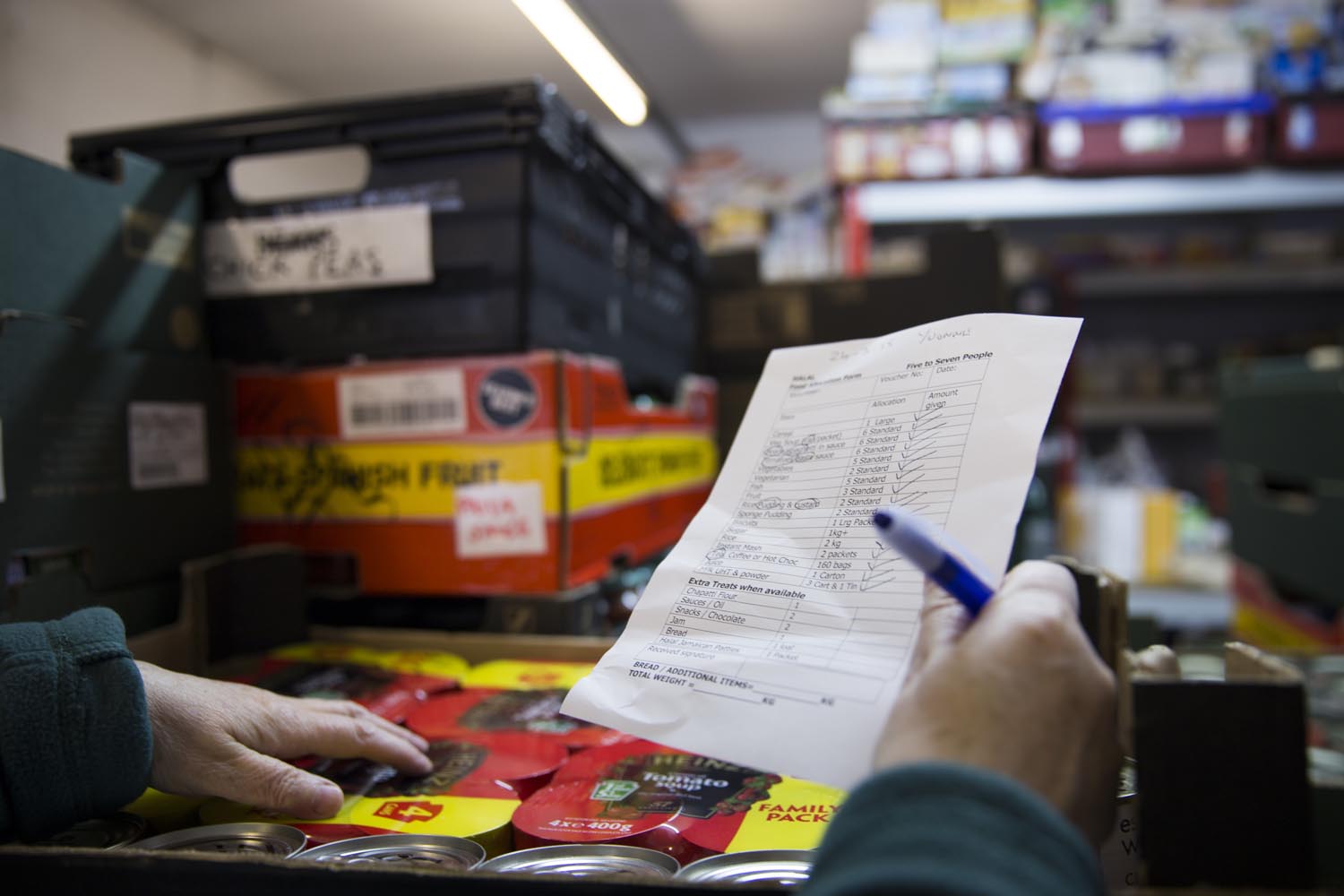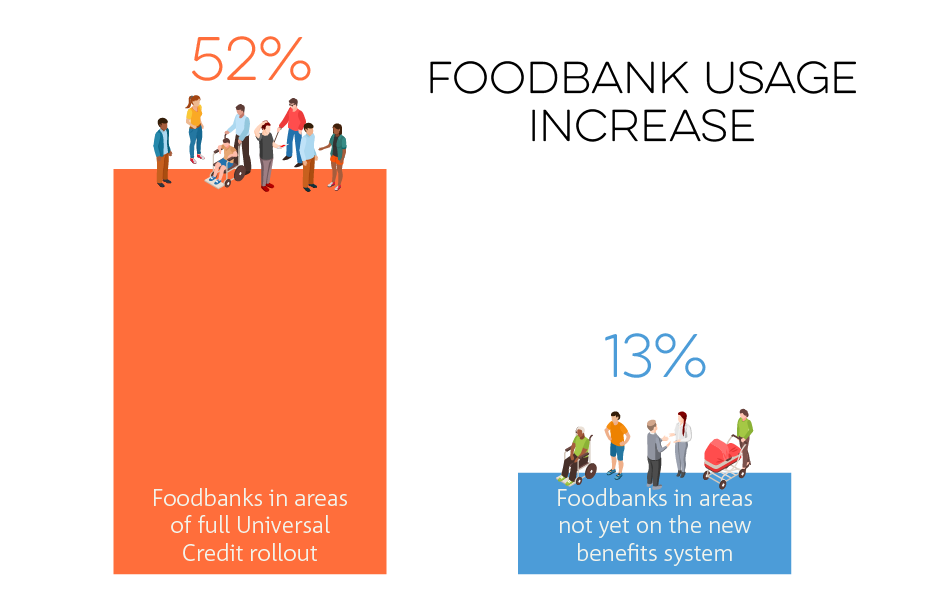Garry Lemon, Director of Policy, External Affairs, and Research
Universal Credit is at a crossroads. And it is in the upcoming Budget that we will get a better idea of what sort of a social security safety net our country will have in the future. The stakes could not be higher.
The new benefit has rarely been far from the front pages in recent days, and with good reason. The admission from the Work and Pensions Secretary Esther McVey that some households would indeed be much worse off under the new system has caused growing disquiet, and added to calls for reform or even scrapping of the system.
Here at The Trussell Trust we have long been warning that Universal Credit is not providing the support it should be, particularly for the people who need it the most – families with children and people with disabilities or illness.
Foodbanks in The Trussell Trust network have on average seen a surge in demand where Universal Credit has rolled out, and the evidence on the link between foodbank referrals and moving onto Universal Credit is growing stronger. A survey of people referred to foodbanks who were meant to be supported by the new benefit revealed the immediate and severe consequences of the five-week wait for payment. People told us of a lack of support, the inability of payments to cover the cost of living for people who most need it, and at times woefully poor administration leaving people penniless and destitute.
This, of course, is not how things were supposed to go. Universal Credit was supposed to support people into work, make work pay, simplify the system, and reduce error.
Whether the new system could have come close to this vision we do not know, as successive cuts have drastically reduced the generosity of the benefit – particularly for families with children and disabled people. That’s why the health, wellbeing and dignity of millions of households now and in the future will depend on the Treasury reinvesting in Universal Credit so that it supports everyone that needs it.
With hints in the press that the Chancellor is reconsidering some of these decisions, we are calling for investment in Universal Credit, first to put the money taken out of the system back in, and second to fund proper support for people moving onto the system.
Families and disabled people have borne the brunt of cuts to Universal Credit. We want working families to keep more of what they earn by restoring the work allowance, and for Child Tax Credits and the Child Element of Universal Credit to be uprated in line with inflation. We are also calling for a reversal to the cut to the ESA ‘work related activity group’ and UC ‘limited capacity for work’ element from £102.15 to £73.10, reflecting the additional inescapable costs of living with a disability.
More support is needed for people moving onto the new system. For disabled people who move onto Universal Credit, we want to see a minimum two-week Employment and Support Allowance run on before the first payment, to ease the burden of the five-week wait. And while the announcement that Citizens Advice will lead on delivering Universal Support is a welcome step, more funding is urgently needed to ensure people can get the advice they need when moving over. This is even more urgent as the next stage of Universal Credit begins in 2019.
Across the UK, thousands of volunteers and donors have done an extraordinary job in the face of the challenges thrown up by Universal Credit, providing not just food, but links to vital services; a cup of tea and non-judgemental human interaction in a time of deeply distressing crisis in people’s lives.
But however dignified the service our volunteers provide, it is no substitute for the dignity of having enough money in your pocket to put food on the table for you and your family. To be able to afford bus fare. Toiletries. Sanitary products. Nappies for your baby. Winter clothes. A warm space for your child to do their homework.
With the right investment, the Government has an opportunity in the Budget to ensure Universal Credit works better, and moves us closer to a future where nobody in financial crisis is referred to a foodbank again.




